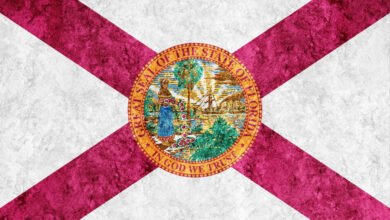OpenSea’s Multi-Chain Shift: New Horizons and Hurdles for Crypto Payments

OpenSea is making waves by evolving from the leading NFT marketplace into a comprehensive trading hub spanning 22 blockchains. This significant shift not only opens doors for businesses and users but also brings forth critical questions surrounding security and compliance. Here, I’ll delve into the opportunities and challenges this multi-chain expansion presents for cryptocurrency payments and what it could mean for international business operations.
Expanding Across 22 Blockchains
OpenSea’s move towards a multi-chain trading platform is a major milestone, mirroring larger trends in the crypto market. By enabling the exchange of various cryptocurrencies across 22 blockchains, it’s enhancing user interaction and engagement within the blockchain space. This expansion aims to improve access to major tokens like Ethereum and Solana, possibly resulting in increased trading volumes and liquidity.
Benefits of Multi-Chain Platforms for Crypto Payments
The multi-chain approach comes with distinct advantages for cryptocurrency payments. One of the most notable is the boost in liquidity, allowing businesses to tap into a broader user base and a variety of digital assets. This could lower barriers for those seeking to integrate crypto payments. Plus, trading across multiple blockchains can smooth out transactions and enhance user experiences.
Challenges in Integrating Payments for Businesses
However, with these opportunities come challenges. Security risks related to cross-chain transactions are a major concern, as integrating multiple blockchains expands the potential vulnerabilities. Businesses must also tackle the technical challenges of multi-chain operations, ensuring their systems can accommodate these complexities.
Regulatory compliance is another hurdle. As OpenSea broadens its offerings, it must align with varied regulations, including the EU’s Markets in Crypto-Assets Regulation (MiCA). This is crucial for businesses looking to implement cryptocurrency payments, as failing to comply with standards can lead to legal troubles and erode user trust.
Regulatory Considerations for Crypto-Friendly Payroll Platforms
For crypto-friendly payroll platforms, the implications of OpenSea’s transition are significant. Businesses must adhere to licensing and authorization mandates, especially if they operate within the EU. This involves rigorous anti-money laundering (AML) and know-your-customer (KYC) measures to avoid legal repercussions.
The introduction of new tokens like OpenSea’s $SEA token complicates matters further. Businesses need to grasp the regulatory classification of these tokens, as it can drastically influence compliance requirements. A utility token may face lighter regulations, while a security designation would entail stricter obligations.
Community Perspectives on OpenSea’s Changes
Community reactions to OpenSea’s transformation are mixed. There’s cautious optimism about improved trading capabilities and broader access to digital assets, yet concerns about complexity and security risks linger. Key figures in the crypto community haven’t officially commented, but discussions on platforms like Discord suggest a blend of hope and caution.
Summary: The Future of Crypto Payments in a Multi-Chain World
OpenSea’s multi-chain transition presents both opportunities and challenges for cryptocurrency payments. As businesses work to incorporate these systems, staying alert to security and compliance is vital. The future of crypto payments will likely depend on how well platforms like OpenSea can balance innovation with the need for robust security and regulatory adherence. This balance could lead to a more inclusive and efficient cryptocurrency ecosystem benefiting both businesses and users.






